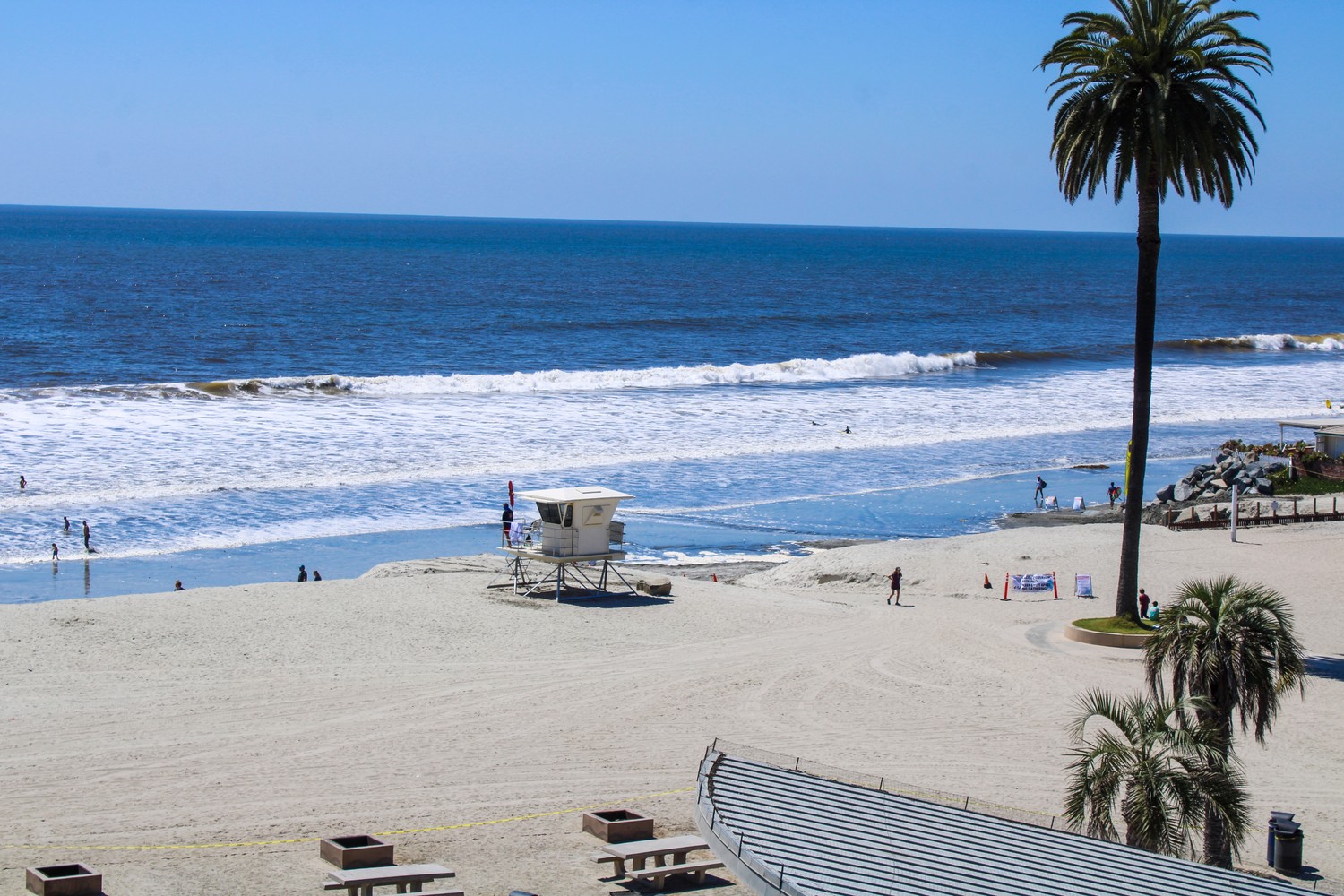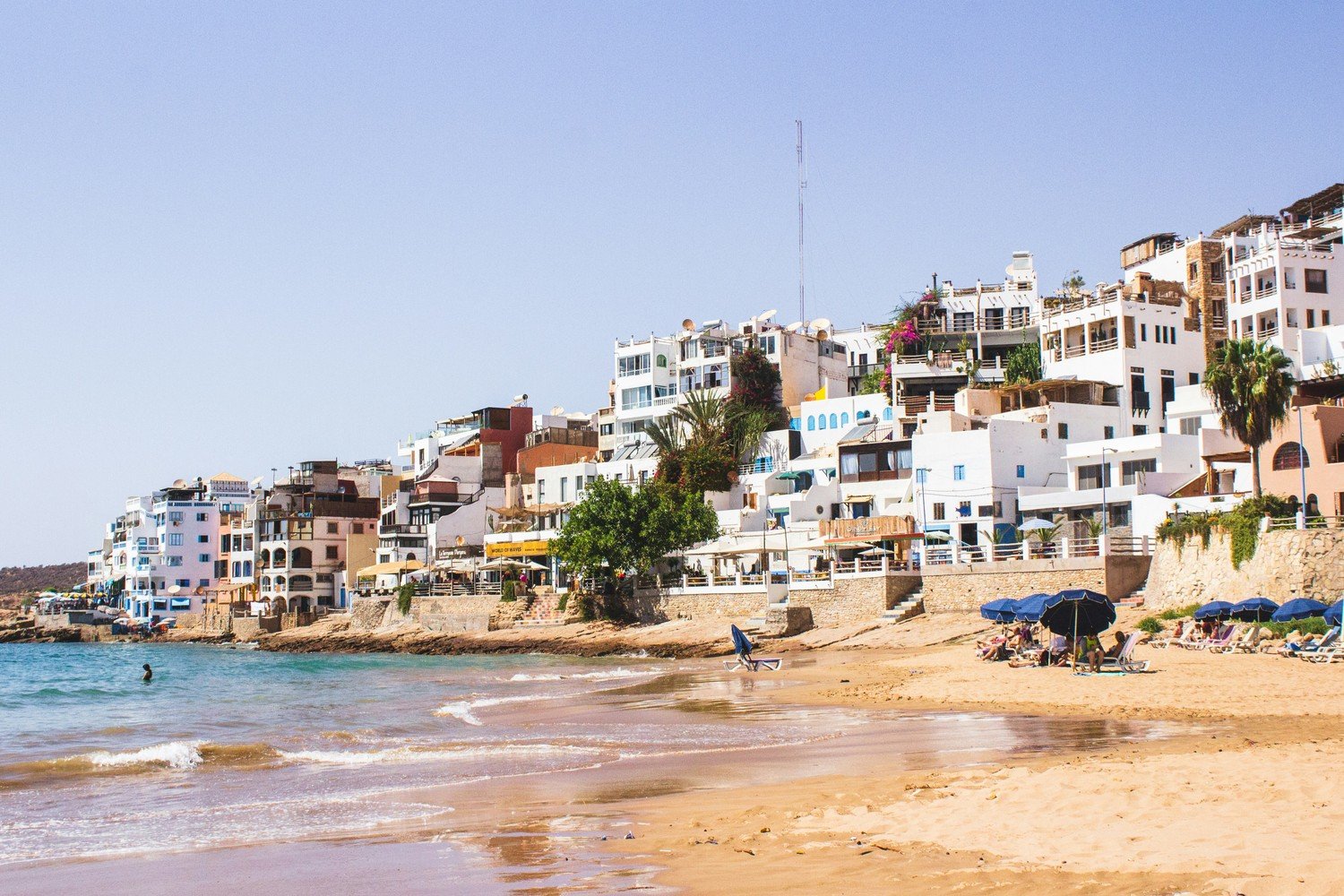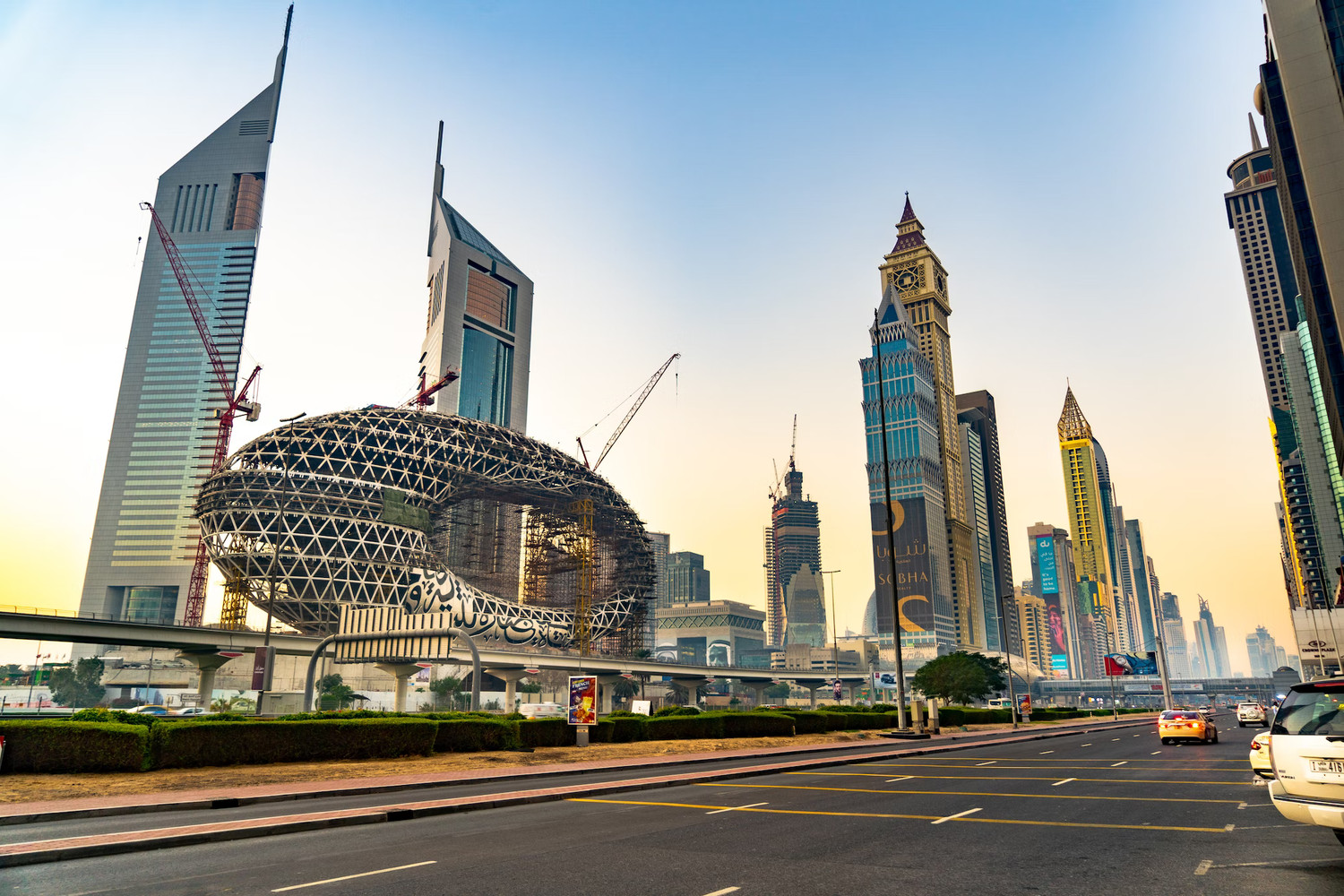
Destination or Hotel
Departure Airports
Travel Dates
Flexible +/-3 days
Nights
Flexible +/-3 days
Guests
Price Match Promise
Flexible +/-3 days
Price Match Promise

Portugal to Reopen Hotels and Beaches: The Latest Portugal Coronavirus News
By
Ricky Durrance
02 Oct 2020
LAST UPDATED: 02 OCTOBER
With low-cost airlines including EasyJet and RyanAir having resumed some flights on 15 June and 1 July, the prospect of an international holiday is coming closer. Portugal tentatively kicked off tourism on 1 June with the reopening of hotels, and the country is now welcoming tourists - yes, you read that right!
With the first and second phases having been a success (or rather: not having resulted in another disaster), Portugal is now in phase 3 of relaxing its lockdown restrictions. Various establishments including shops, restaurants and museums are allowed to open, although at 50% capacity and with social distance in place. The most exciting news, however, is that tourists are now allowed in the country. Read on for more information about the current situation in Portugal.
Portugal’s Plan to Recovery
On 30 April Portugal’s Council of Ministers approved a three-phase plan to ease lockdown restrictions within the country. The sector-by-sector plan is to be reviewed every 15 days and revised as the situation requires.
PHASE 1: 4 MAY
From the 4th of May, public transport was allowed to resume at two-thirds capacity. Small local businesses were permitted to reopen, including hair and nail salons (by appointment only), bookshops, car dealerships, libraries and archives. Individual sports like tennis and golf could be resumed – although players will have to get dressed for the activity at home, as changing rooms will remain closed.
From this information, we are imagining that, if we were Portuguese, we would have spent our first day of relative freedom getting our hair and nails done (about time!), picking up a few groceries, browsing the bookshop for the latest thriller, buying a new car, doing a little research and rounding things off with a rousing game of golf. Just. Because. We. Can. What a truly excellent day that would have been!
PHASE 2: 18 MAY
As the number of coronavirus cases in Portugal has maintained its downward curve, the country was allowed to enter phase 2 on 18 May. This is a really good phase because in it, restaurants, cafés, bakeries and esplanades can open at 50% capacity - although without table decorations but with contactless payment and proper ventilation. Can’t complain about that.
Larger shopping venues up to 400 square metres are now available to people long starved of them. Museums have also reopened for that vital culture fix - coincidentally, on International Museum Day! This must feel almost like real life again.
Some schools are reopening: childcare centres and preschools as well as grade 11 and grade 12 high school students. Other classes will continue to function remotely for the remainder of the academic year.
All the while, the usual safety measures are still in place. Residents must wear their masks, stay two metres apart and disinfect their hands and shared surfaces regularly.
PHASE 3: 1 JUNE
The Portuguese can now head to venues where crowds congregate: shopping malls, cinemas and theatres. What’s more, going back to the office – something we might have considered a downside back when life was normal but which now looks highly desirable – is now allowed, although remote working is still preferred where possible.
Hotels with ‘clean and safe’ status were allowed to reopen to guests on 1 June. Beaches opened on 6 June, with sunbathers ordered to keep at least 1.5 metres apart and parasols three metres apart. A new traffic light system will allow beachgoers to check how busy beaches are ahead of time: red for ‘full’, orange for ‘filling up’ and green for ‘plenty of space’.
In all phases, social distancing protocols will remain in effect, and masks must be worn.
It’s a Process
Portugal’s plan, like similar plans around the world, doesn’t come with a guarantee of success. “We know this process has risks,” Prime Minister António Costa said. “We know that as we open up various activities, the risk of transmission will increase.”
We are going to keep quoting Costa because he’s like the Winston Churchill of Portugal in the Coronavirus Age: “I will never be ashamed to take a step back if necessary for the safety of the Portuguese”. Costa stresses that even if all goes well, “it does not mean that the pandemic is over, that the risk is overcome.” One more stirring quote and we’ll stop, promise: “We must continue to actively prevent and combat the pandemic.”
But Portugal has a few tricks up its sleeve to keep on top of the situation. One is a ‘clean and safe’ badge, an initiative for companies meant to boost confidence amongst their workers – and tourists, when they’re back in the picture. Organisations that meet hygiene requirements stipulated by the authorities are rewarded with such a badge, good for one year.
The country is also working to implement a contact-tracing mobile app to help monitor new cases of the coronavirus.
Football
Football gets its own heading because, well, what proves that life goes on better than football? The country’s football league, the Primeira Liga, suspended play on 13 March, with 10 matches left to go. As of 30 May, the Portuguese government allowed the league to start playing again. Matches are now to be played without spectators, which is fairly surreal, a little like that old philosophical question, ‘If a tree falls in the forest and there’s no one around to hear it, does it make a sound?’. Still, even matches without spectators yield scores, right?
How Hotels Responded
As a country that’s heavily dependent on tourism - in 2018, the sector made up 14.6% of the gross domestic product - hotels in Portugal are itching to open their doors again. And the exciting news is: some of them have been open from 1 June onwards - although predominantly to Portuguese residents.
Elidérico Viegas, president of the Algarve hotelier association AHETA, said: “Even a 40% occupancy rate for the summer, fuelled mostly by Portuguese tourists, would be an optimistic scenario and would help mitigate the losses that hotels experienced since the pandemic started”.
A recent update from Portuguese hotel chain Vila Galé announced the gradual reopening of their hotels starting in June, with a reassuring safety plan in place.
Will Holidays to Portugal Be Possible in 2020?
There’s good news on that front. The Portuguese Minister of Foreign Affairs has announced that travellers, including tourists, will be allowed in Portugal as of 4 June. And yes, the UK is on that list. As of 6 June, all EU countries have been added to this list list, excluding Spain and Italy.
When you fly into the country, you won’t have to quarantine for 14 days (which is good news, because by then your holiday is just about over and you’ll have to fly back to dreary old England). Instead, a simple health check will be carried out - think checking your temperature and assessing whether or not you have a cold.
Your holiday will include mandatory face masks while outside and will require you to make reservations if you wish to visit a public place, but hey! Some Portugal is better than none, right?
However, it’s important to note that the UK government once again recommends that you don’t travel to Portugal (with the exception of the Azores and Madeira) unless absolutely necessary - and even then, once you return back to the UK after your trip, you will have to self-isolate for 14 days. It looks like it’s best to hold off on booking your holiday for the time being… but we’ve got our fingers crossed that Portugal will return to the list of government-approved travel corridors soon!
If you’re still unsure of whether or not to go on holiday to Portugal this summer, then here’s some hopeful and inspiring news: if you booked your holiday before the coronavirus changed the world, Portugal wants you to consider your trip postponed, not cancelled.
Did you book a holiday to Portugal for sometime between 13 March and 30 September 2020? Did you go through a travel agency and/or were planning to stay at an accredited holiday accommodation, such as a hotel or an Airbnb? Portugal will make it easy for you to reschedule. According to Rita Marques, the Portuguese Secretary of State for Tourism, Portugal will give you a voucher for a future holiday, redeemable until 31 December 2021.
If the coronavirus beast is not yet slain by then, making travel to Portugal impossible, you’ll be eligible for a refund in 2022.
"We are being absolute pioneers in the European context,” says Marques. “Our priority is to safeguard consumer rights and the interests of economic operators.”
Here is a glimpse or two of what you can look forward to when you do redeem your holiday, or schedule a new one.
Portugal Travel Advice: It Safe to Travel to Portugal Right Now?
Unfortunately, not quite. You can now enter the country but the UK government’s travel advice discourages all but essential travel. So the sad but true answer to “Can I travel to Portugal yet?” is no.
We Miss You, Portugal
All those times we complained because we took Spanish in school but that didn’t help us as much as we had hoped with Portuguese. All those times we were annoyed with the spell checker for being right that there’s another ‘u’ after the ‘g’ and before the ‘ese’ in ‘Portuguese’. All those times we weren’t sure if Algarve is one word or two. (Hi, your new coworker says brightly, my name is Al Garve!)
Oh, we’ll never, ever complain again, Portugal, because we miss you and we love you. Even if we didn’t book a holiday with you for 2020 before the coronavirus, we’d like to consider our trip only postponed, not cancelled.
We’re counting down until our next trip to Portugal. Until then, let’s stay in touch through updates and enticements of our favourite countries reopening slowly.
40,000+ verified
customer reviews
Loading reviews...
Expert AdviceWhere to go & when

Millions of
happy customers

Over 30 years
travel experience

Triple Lock Protection
ATOL, TTA, Secure Trust
We want all our customers to stay safe when abroad. For the latest travel advice from the Foreign, Commonwealth & Development Office click here. Further advice can be found on the Travel Aware page here. Please note the advice can change so check regularly for updates and before you travel.
teletextholidays.co.uk acts as an agent in respect of all bookings made by telephone. For all bookings, your contract will be with the applicable Service Provider of your chosen Travel Service (who may be the principal or the agent of the principal) and Teletext acts only as an agent on their behalf. Your holiday will be financially protected by the ATOL scheme and you will receive an ATOL certificate once your booking has been confirmed. Please see our booking conditions for information, or for more information about financial protection and the ATOL Certificate go to:www.caa.co.uk/atol-protection
*We are able to offer a price match if suppliers are the same.
Teletext Travel Ltd, company number 14855829. Address: 71-75 Shelton Street, Covent Garden, London, United Kingdom, WC2H 9JQ.
Copyright 2025 teletextholidays.co.uk | All rights reserved.





